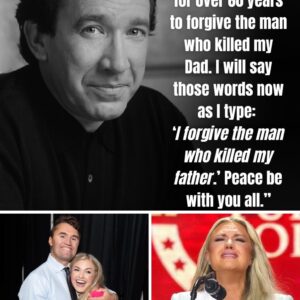In this silence, one voice rises. It belongs to Willie Nelson, the outlaw poet of country music, the living legend whose words have always carried more weight than melody alone. And this time, his voice is not set to music but to fire.
A FIREBRAND IN THE QUIET
Willie’s words slice the silence. His tone is unflinching, his presence unwavering. He does not whisper; he commands.
“This is more than television,” Nelson declares. “This is about respect. About dignity. About the weight of a name that millions carry in their hearts.”
The crowd does not clap. They do not cheer. They listen. The silence that follows is deafening — the kind of silence that carries grief, outrage, and unity all at once.

Nelson’s voice does not tremble with fear; it burns with fury. He does not plead for decency. He demands it.
A NATION ON EDGE
For days, the nation had simmered. Jimmy Kimmel’s late-night monologue — intended, some argue, as satire — had veered into territory that no joke should tread. In referencing Charlie Kirk’s death, he crossed a line etched not in politics, but in humanity.
Across America, fans of Kirk, his family, and those who simply understood the sacredness of mourning erupted in outrage. Hashtags blazed across social media: #RespectCharlie, #ShutDownKimmel, #NotADamnPunchline.
By the time ABC’s executives announced the indefinite suspension of Jimmy Kimmel Live!, the network had little choice. The backlash was a storm, and the storm was growing.
WILLIE NELSON: NOT JUST A MUSICIAN, A WITNESS
When Willie Nelson stepped into the storm, it was not as a singer but as a sentinel. He has always been more than his songs. At 92, Nelson has carried decades of rebellion, compassion, and truth on his shoulders.
In this moment, he becomes a guardian — a voice for the voiceless, a defender of memory. Every sentence he speaks lands like the strum of his beloved guitar, Trigger — sharp, heavy, unforgettable.
“Charlie’s memory is not a punchline. Not a target. Not disposable,” Nelson says, his voice cracking like lightning against the horizon.
The words echo beyond the press conference, beyond the stage. They ripple into living rooms, bars, churches, and coffee shops across the country.
THE WEIGHT OF A NAME
Names carry power. They carry stories, lives, legacies. To mock a name is to diminish not only the person but the millions who hold that name close to their hearts.
Charlie Kirk’s name had become more than a label. To many, it symbolized conviction, faith, and resilience. Whether one agreed with his politics or not, his sudden death was a wound still raw, a scar still forming.
For Willie Nelson, who has buried friends, rivals, and heroes, the sanctity of that name was untouchable.
THE SILENCE THAT FOLLOWED
When Nelson’s statement ended, there was no applause. The silence was not empty; it was charged, electric. It was the kind of silence that comes when words carve into the very marrow of society.
For many, it was a moment of recognition: that grief deserves reverence, that death demands dignity, that jokes have limits.

THE INDUSTRY ON TRIAL
Willie Nelson’s words did more than rebuke Jimmy Kimmel. They put the entire entertainment industry on trial.
In an era where comedy often blurs into cruelty, where shock is mistaken for wit, Nelson drew a line in the sand. He reminded Hollywood that behind every headline lies a human being, behind every tragedy lies a family, and behind every name lies millions who remember.
“The world doesn’t need another cheap laugh,” Nelson said. “It needs respect.”
A DIVIDED AUDIENCE
The fallout has been seismic. On one side stand those who argue for freedom of speech, defending Kimmel’s right to satirize. On the other side stand millions who echo Willie Nelson’s cry for dignity.
Debates rage on talk shows, podcasts, and in social media threads that stretch for miles. Some call Nelson a hero. Others call him an overreactor. But one truth unites both sides: they are listening.
And that, perhaps, is Nelson’s greatest triumph.
A HISTORY OF SPEAKING TRUTH
This is not the first time Willie Nelson has spoken truth to power.
From campaigning for farmers in the 1980s with Farm Aid, to standing for legalization of cannabis, to raising his voice for veterans, Nelson has always seen his platform as more than a stage.
“Music is medicine,” Nelson once said. “But sometimes, medicine needs words.”
Today, those words are the medicine for a wound left raw by cruelty.
ECHOES ACROSS GENERATIONS
Younger artists have quickly rallied behind Nelson. John Foster, Carrie Underwood, and even rock icons like Steven Tyler have shared his words across their platforms.
Foster tweeted simply: “Willie said it best. Respect isn’t optional.”
Underwood wrote: “A voice of truth in the storm. Thank you, Willie.”
Fans, too, are flooding social media with tributes. Memes, banners, and posters with Nelson’s quote — “Charlie’s memory is not disposable” — are spreading like wildfire.
ABC’S RECKONING
For ABC, the decision to pull Jimmy Kimmel Live! indefinitely marks one of the most drastic actions in recent memory. The network, already reeling from declining ratings, now faces a crisis of credibility.
Behind closed doors, insiders whisper about replacements, legal battles, and advertiser backlash. Some executives argue Kimmel may never return. Others hope the storm will pass.
But with Willie Nelson’s words still ringing in the public’s ears, the storm shows no sign of ending.

MORE THAN MUSIC, MORE THAN TELEVISION
At its heart, this moment transcends both music and television. It is about the fundamental human need for respect.
Willie Nelson, with his weathered face and unshakable voice, has reminded the world of something simple yet profound: that even in an age of noise, silence still matters, and that even in an age of mockery, dignity still has defenders.
THE FINAL NOTE
In that moment, Willie Nelson is not just a country star. He is a witness. A guardian. A voice for the voiceless.
And across the world, one truth rises above the noise, above the storm, above the clash of politics and entertainment:
Charlie Kirk will not be mocked. He will be remembered.





